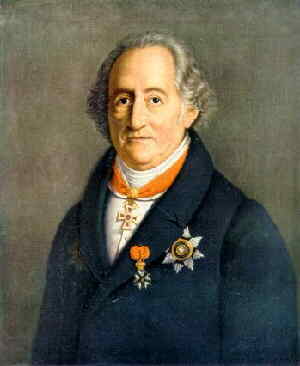Allgemein
Archivverlag Agraffe
Christoph Podak
Nachlässe und Werke von Pionieren/innen der Formkräfteforschung und Artverwandtes.
http://www.agraffenverlag.ch
GOETHEAN
SCIENCE: BRINGING CHAOS TO ORDER BY LOOKING PHENOMENA RIGHT IN
THE “I”
Tom Mellett - tombouyed@aol.com
Steiner saw that Goethe made a clear distinction between the
inorganic sciences and the organic sciences. If we don’t make
that leap of intuition, then all science beyond the inorganic
will remain a reductionistic rubble of useless information—
except for technological progress. I’m not knocking
technology; but technology will answer no questions beyond the
closed system its own self-consistent and therefore
self-satisfied inorganic realm.
I think the
first step beyond the inorganic realm is to realize that the
cosmos beyond the inorganic is incalculable. The
mathematician Kurt Goedel proved in 1931 that any mathematical
system is incomplete for a description of reality. That
incompleteness is built into every computer because every
computer, now matter how big, must approximate the numbers it
crunches. And by so doing, it lops off a tiny piece that might
just feed back into the system and drive it to chaos,
unpredictable chaos, yet such a chaos that can equally and
inevitably spontaneously self-organize into a stable orderly
system again.
http://www.southerncrossreview.org/6/goethe.htm
PUTTING
SOUL INTO SCIENCE
Michael Friedjung - fried@iap.fr
This book is the result of thinking for many years about the
apparent contradictions between what is accepted as scientific
knowledge and various forms of spiritual teaching. These
include the "anthroposophy" of Rudolf Steiner, to
which I shall refer fairly frequently in the book. The problem
is that modern science is based on materialistic assumptions;
it supposes that the whole Universe is, in the last instance,
explainable by the laws of physics. The question then arises:
is another sort of science possible which does not eliminate
the soul and spirit? In this book I look at various basic
assumptions of the scientific methods as presently practiced
and how they might be changed so as to make another kind of
science possible. It now appears clear to me that especially
ideas about consciousness, the existence of separate conscious
beings and the soul need to be integrated into science; it is
not sufficient, as is sometimes done, to make some sort of
unorthodox physics if it remains "soulless". In fact,
within what is present-day official science it is possible to
see that certain great discoveries of the twentieth century
can be understood in a different way than as is usual among
most scientists. That way, involving the presence of conscious
beings with certain soul qualities, is described in this book,
as well as why present day physics has something
"inhuman" in it. In this work I have been inspired
by some of Rudolf Steiner's basic ideas; however, I propose a
path for the reader which does not require prior acceptance of
the statements made by him or by any other spiritual teacher.
(from the PREFACE)
http://www.southerncrossreview.org/2/soulsci1.html |




